ANALYSIS
Ramaphosa’s tribute to former Soviet leader Mikhail Gorbachev glosses over an awkward history with the ANC
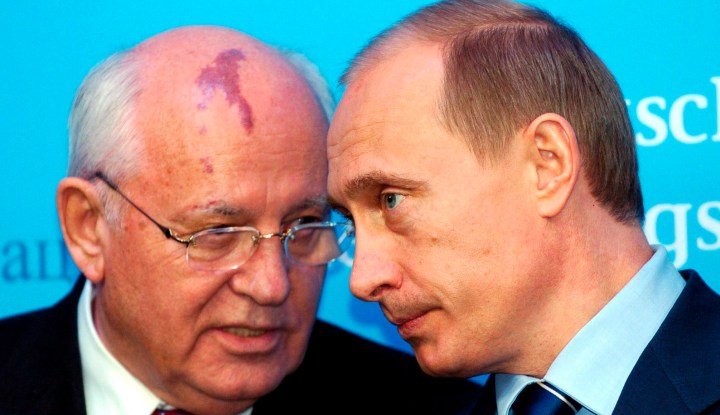
President Cyril Ramaphosa’s tribute to Mikhail Gorbachev omits the most important contribution the Soviet leader made to the liberation of South Africa. By withdrawing his support for the ANC’s armed struggle — and by inadvertently dismantling the USSR — Gorbachev implicitly gave the apartheid government the reassurance that it could risk unbanning the ANC.
President Cyril Ramaphosa’s tribute to Mikhail Gorbachev, who died last week and was buried on Saturday, concealed more than it revealed about the ANC’s difficult relations with the last Soviet leader.
Ramaphosa praised Gorbachev for backing the ANC’s armed struggle all the way, ignoring the awkward reality that Gorbachev in the end had largely abandoned the ANC in his eagerness to reform the USSR and make peace with the West.
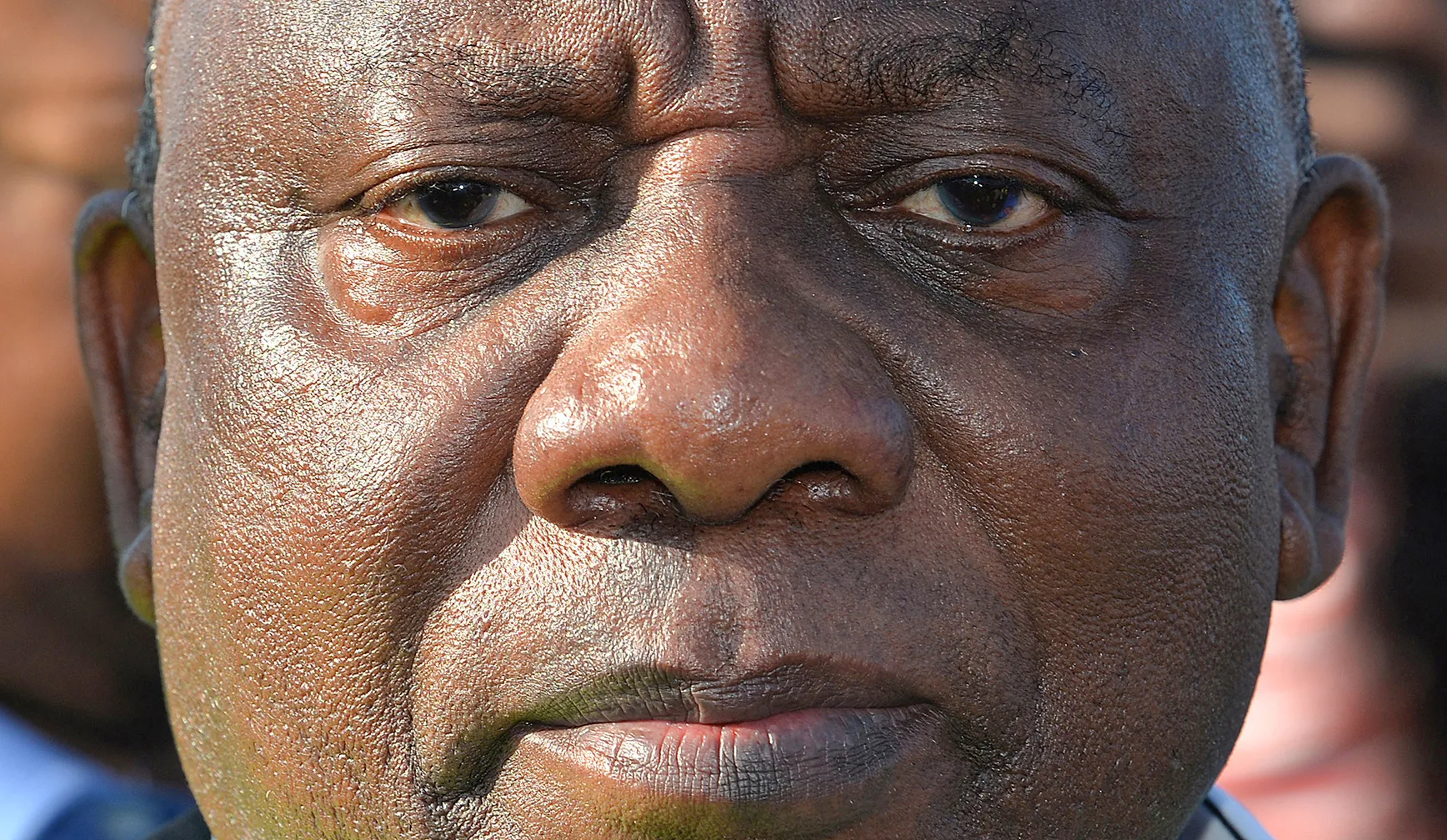
President Cyril Ramaphosa. (Photo: Deon Ferreira)
The weekend funeral of Gorbachev, 91, in Moscow, was as ambiguous as his legacy. His body was displayed for public viewing at the Pillar Hall of the House of the Unions, a mansion near the Kremlin that has served as the venue for state funerals since Soviet times, AP reported.
The funeral ceremony also included some official trappings such as an honour guard which flanked the open casket as mourners filed past. But Russian President Vladimir Putin denied Gorbachev the official state funeral which would normally have been accorded a former head of state. Putin also declined to attend the funeral himself, saying through his spokesperson that he was “too busy.”
Reformer who ended Cold War
Gorbachev was widely hailed in the West and elsewhere in the world as a courageous reformer who ended the Cold War. Many Russians, and even more citizens of what were then Soviet republics or satellites, are grateful to him for liberating them from Soviet domination.
But Russian nationalists — some might say imperialists — like Putin, blamed Gorbachev for precipitating the breakup of the Soviet Union, which Putin has called the 20th century’s “greatest geopolitical catastrophe”.
Gorbachev’s “perestroika” — his structural reforms — were intended to revive the moribund Soviet economy and society, including lifting the heavy hand of Moscow’s control over the satellites. He acquiesced as they gratefully spun out of Moscow’s orbit.
Putin has also blamed Gorbachev for failing to secure written commitments from the West not to expand Nato eastward towards Russia’s borders. The supposed threat to Russia’s security posed by that expansion was one of the reasons Putin gave for Russia’s invasion of Ukraine on 24 February this year.
Ramaphosa’s praise for Gorbachev
Ramaphosa expressed condolences on Gorbachev’s death in a statement last week. He lauded Gorbachev for sustaining the Soviet Union’s support for South Africa’s liberation struggle “in the critical period that led to the unbanning of the liberation movement and our transition to democracy”.
“South Africa is greatly indebted to the support provided by the Soviet Union over an extended period — including Mr Gorbachev’s term of office — to South Africa’s liberation movement and to anti-colonial struggles in southern Africa,” Ramaphosa added.
In truth, Gorbachev’s support for the ANC’s liberation struggle was fading fast in those critical last years of the 1980s, as the Soviet leader embarked on his “perestroika” and “glasnost” (openness) reforms.
As he tried to make peace with the West, Gorbachev could not spare the time to meet even Nelson Mandela, and certainly no other ANC leader in that period. It was clear that the Soviet Union’s long support for the armed struggle had become a political embarrassment to him.
Ramaphosa pointed out in his tribute that Gorbachev had met ANC leaders Oliver Tambo and Thabo Mbeki in Moscow in November 1986 “for deliberations in Moscow on the anti-apartheid struggle and international questions”.
Gorbachev reluctant to meet ANC leaders
But that was the last time Gorbachev was to meet an ANC leader, as Vladimir Shubin — the ANC’s liaison official with the Soviet Communist Party — notes in his book, The Hot Cold War: the USSR in Southern Africa. He writes that when Tambo paid his last visit to the Kremlin in March 1989, he could only meet Gorbachev’s deputy, Anatoly Lukyanov, not Gorbachev himself.
This was, as Shubin said, “because it became increasingly difficult to “mobilise” the Soviet leader to meet Africans.
“His attention had evidently shifted to the West.”
Shubin, who was the note-taker at Tambo’s meetings — both with Gorbachev in 1986 and Lukyanov in 1989 — does firmly reject the interpretation of some analysts, including former US assistant secretary of state for Africa, Herman Cohen, that the Soviets advised Tambo on these visits to Moscow to abandon the ANC’s socialist policies.
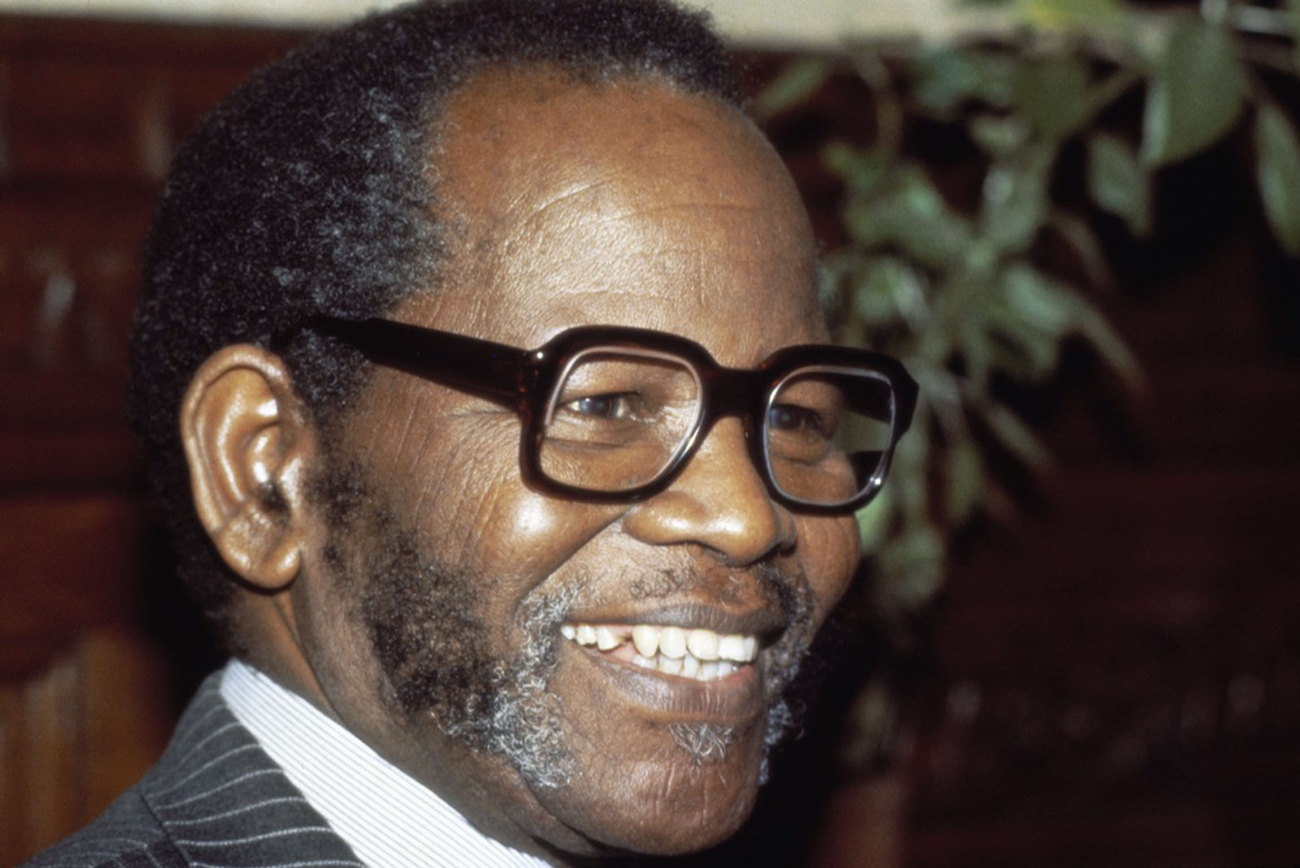
Oliver Tambo. (Photo: Supplied)
Cohen wrote then that in the Kremlin, “Gorbachev and his colleagues bluntly told him not to make the same mistakes they had made… Nelson Mandela and his team decided to follow Gorbachev’s advice to take the capitalist road.”
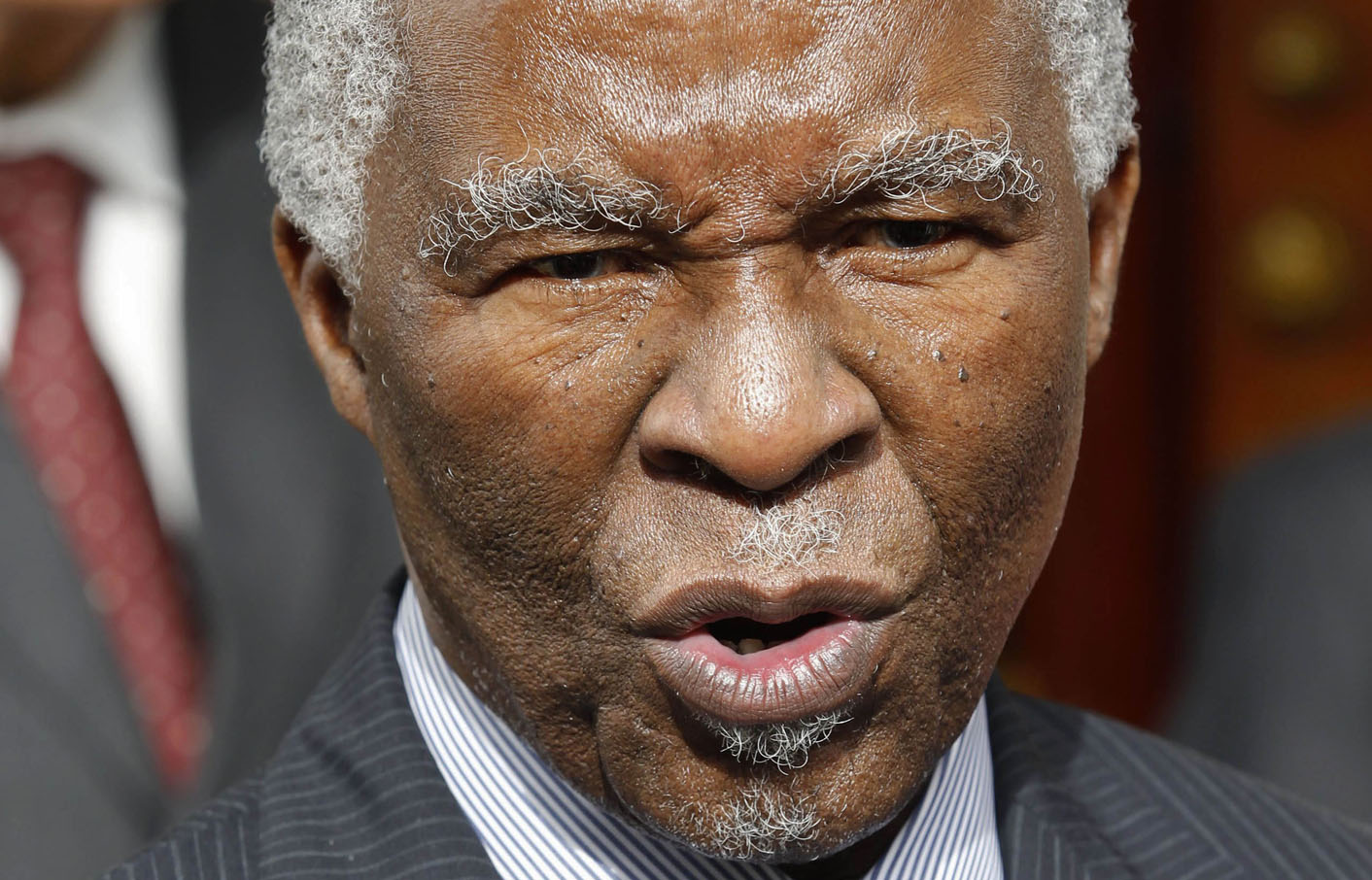
Thabo Mbeki. (Photo: Reuters / Louafi Larbi)
Putin dismisses Cohen’s reading of Tambo’s visit as historically wrong, noting for instance that Tambo never met Gorbachev in 1989, and that at Gorbachev’s only meeting with Tambo and Mbeki in 1986, he had given no such advice to them.
Nonetheless, Shubin does acknowledge that, on the threshold of the 1990s, the Soviet Union was undergoing serious political and institutional changes.
“Its foreign policy, directed by Gorbachev and (foreign minister Eduard) Shevardnadze, was rapidly changing as well, and not in favour of the liberation struggle.”
Russia and the apartheid regime
In September 1989, at the UN General Assembly, Shevardnadze “pledged ‘to oppose… resolutely all kinds of violence, no matter what had caused or motivated it’.”
Shubin observes that “this could be read, in particular, as opposing any resolute action against the racist regime in South Africa”.
He adds that Shevardnadze, “a clever and canny politician, could easily change his language depending on the circumstances”. And so, on 20 March 1990, after the ANC and SA Communist Party had been unbanned and Mandela released from jail, Shervardnadze had told Mbeki, Joe Slovo and Alfred Nzo in Lusaka that the Soviet Union was “ready to work with you in your revolutionary work”.
Shubin notes, though, that Mbeki was not convinced by Shevardnadze’s assurances, and later warned that the USSR should not be seen to be working with a “system on its way out”.
But that is exactly what then happened over the next two years.
Shubin observes that “the release of Nelson Mandela made it possible for him to visit the USSR for the first time. However, rather unexpectedly, his visit became a problem in Moscow’s relations with the ANC.”
No meeting with Mandela
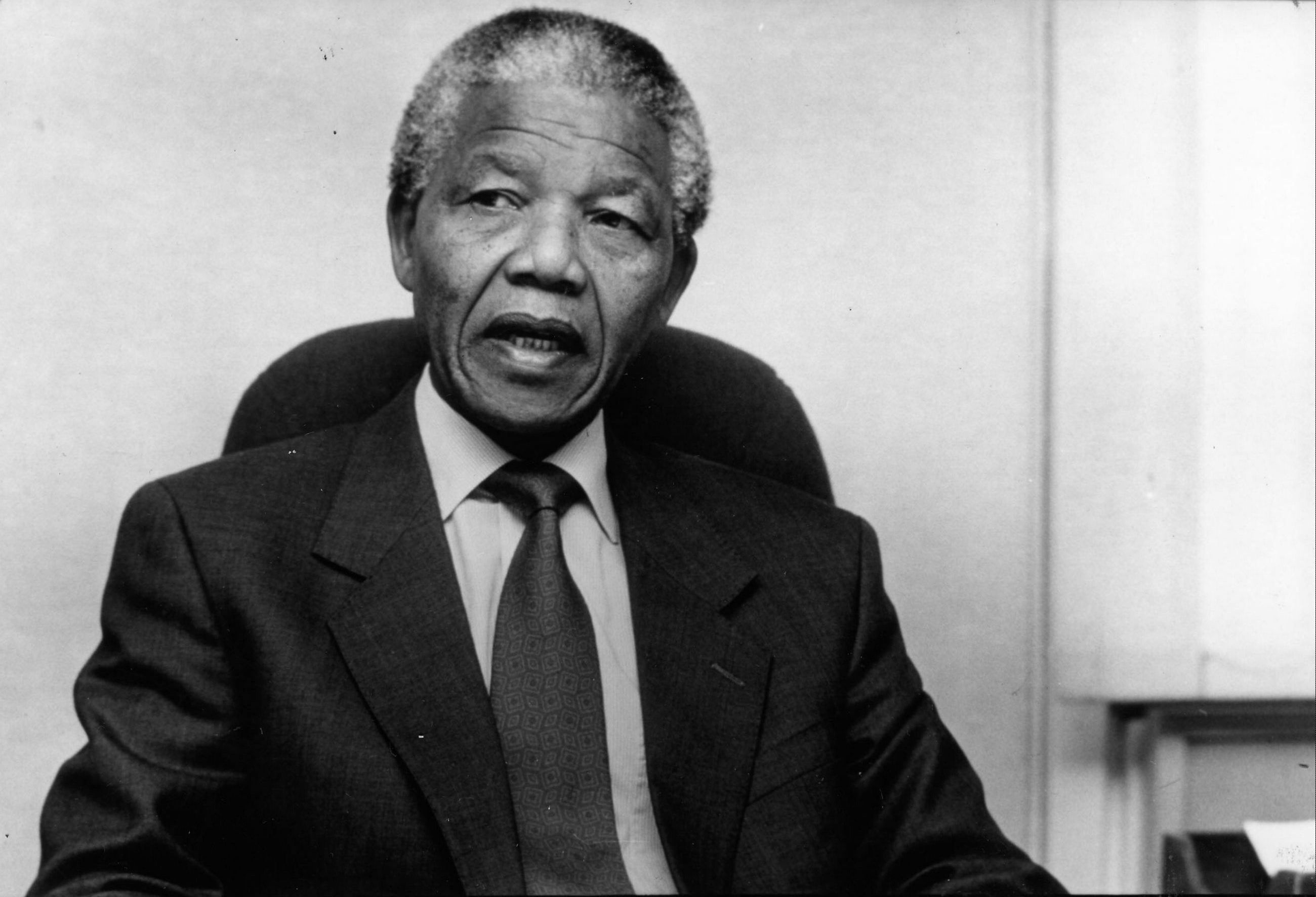
Nelson Mandela. (Photo: Gallo Images via Getty Images / Sunday Times)
An invitation on behalf of the USSR was sent to Mandela in the name of Gorbachev, but up to the end of Gorbachev’s administration, “nothing came of it”.
“On the surface, the reasons for this were purely technical, but beneath the surface, these delays reflected far-reaching changes in Gorbachev’s policy,” Shubin wrote.
“Anatoly Chernyaev, then his assistant for international affairs (and a Central Committee member!), who proved to be yet another turncoat, wrote in his memoirs; ‘Gorbachev had a good nose for people who had no prospects’ and were ‘useless to us’… he ‘froze’ his meeting with Mandela…”
Chernyaev went on to write that Soviet academics and the ministry of foreign affairs tried to persuade Gorbachev to receive Mandela, saying that he was travelling the world, suggesting it would look bad if he did not also come to Moscow.
But Chernyaev said “Gorbachev did not believe that by supporting the ANC and supplying it with arms, we were assisting the correct process in South Africa. He did not stop it ‘automatically’. He had no time to do it.”
Shubin goes on to recall that Mandela had raised the matter of his delayed visit to Moscow with Shubin and his colleagues on 3 July 1991 at the ANC’s national conference outside Durban. Mandela told the Soviet officials then that “Gorbachev must have had a good reason to do it”.
Gorbachev approves FW de Klerk visit
Shortly after that, though, Gorbachev agreed instead to meet South Africa’s National Party leader FW de Klerk on an official visit scheduled for early December that year, says Gerrit Olivier, who was then posted in Moscow as head of the SA government’s “interest section” there.
This was a de facto embassy, though Shubin insists its diplomatic ranking was lower than that of the ANC office in Moscow. The Soviet Union had a corresponding interest section in Pretoria. Both were situated in Austria’s embassies in the two cities.
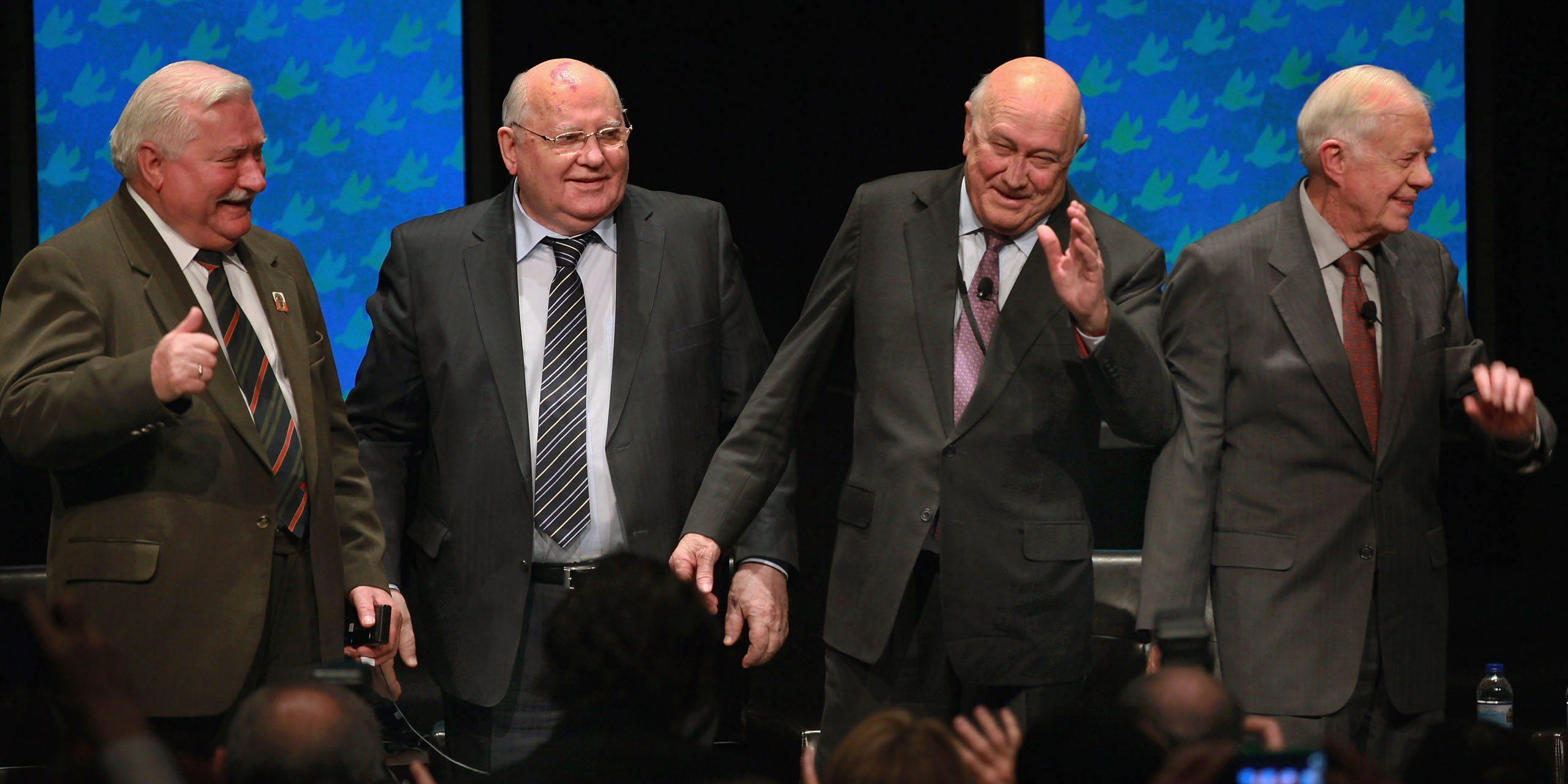
Nobel Peace Laureates (from left), former Polish President Lech Walesa, former Russian President Mikhail Gorbachev, former South African President FW de Klerk, and former US President Jimmy Carter finish a panel discussion at the University of Illinois at Chicago as part of the World Summit of Nobel Peace Laureates on 23 April 2012 in Chicago, Illinois. (Photo: Scott Olson / Getty Images / AFP)
Olivier told Daily Maverick this week that Gorbachev had approved De Klerk’s visit and had also decided that full diplomatic relations between the USSR and the National Party government would be formalised during De Klerk’s visit.
This would have been a setback for the ANC, who regarded diplomatic relations between the National Party government and the USSR as “an unfriendly development”.
“At the time, ANC relations with the Kremlin were at a low point as Gorbachev renounced the armed struggle, spoke in favour of a negotiated settlement, and suspended arms sales to the ANC,” Olivier said.
“My job in Moscow entailed mainly the normalisation of diplomatic relations and the abrogation of sanctions, while the ANC heavily opposed any such developments.”
The possibility of Gorbachev meeting any South African leader was rapidly overtaken by dramatic events in Moscow. In August 1991, hardliners of the Soviet Communist Party opposed to Gorbachev’s reforms had tried to oust him in a coup and briefly detained him.
Gorbachev resigns
Boris Yeltsin, head of the newly reconstituted Russia, backed by large public protests, thwarted the coup, but Gorbachev’s power had been fatally injured and he resigned in December 1991, when power passed to Yeltsin as the USSR collapsed.
Olivier recalls that because of the turmoil, De Klerk postponed his visit to Moscow and so never did meet Gorbachev as president.
Meanwhile, Shubin notes that the “political renegades and sell-outs who controlled the country and its foreign affairs during that period did their best to distance themselves from the ANC (just as from other old friends of Moscow) and embrace Pretoria”.
In February 1992, Yeltsin’s “notorious” minister of foreign affairs, Andrey Kozyrev, signed an agreement to establish diplomatic relations between Russia and South Africa in Pretoria, Shubin said.
Olivier recalls that the ANC’s diplomatic relations suffered greatly as a result and they had to close their office in Moscow.
“Finally, instead of receiving Mandela, Yeltsin welcomed De Klerk in the Kremlin in late May 1992,” Shubin writes with evident disgust.
“He even told him that ‘Mandela would not be received as the ANC president in Moscow, but would be visiting Russia as an international figure, a fighter for human rights’, and such assurances made Pretoria more intransigent at the talks with the ANC,” Shubin opines.
Yeltsin meets Mandela
Mandela would only meet Yeltsin seven years later, in 1999, when he travelled to Moscow as South African president “to express his appreciation for the Soviet Union’s solidarity with the ANC’s armed struggle”, Ramaphosa said, with some unintended irony.
The main irony of Ramaphosa’s tribute to Gorbachev, though, is that it omits — probably because as ANC leader he could not afford to admit — the most important contribution the Soviet leader made to the liberation of South Africa.
By withdrawing his support for the ANC’s armed struggle — and by inadvertently dismantling the USSR — Gorbachev implicitly gave De Klerk and the National Party the reassurance that they could risk unbanning the ANC and its ally, the SACP.
Visit Daily Maverick’s home page for more news, analysis and investigations
In his autobiography, The Last Trek: A New Beginning, De Klerk, who had become president in August 1989, explained his momentous decisions of 2 February 1990.
“The first few months of my presidency coincided with the disintegration of Communism in Eastern Europe, which reached its historic climax with the fall of the Berlin Wall in November 1989,” wrote De Klerk.
“Within the scope of a few months, one of our main strategic concerns for decades — the Soviet Union’s role in Southern Africa and its strong influence on the ANC and the SACP — had all but disappeared.
“A window had suddenly opened which created an opportunity for a much more adventurous approach than had previously been conceivable.”
Statesman or traitor?
Ramaphosa praised Gorbachev as “a statesman who was able to balance his love for his country and the advancement of its interests with the vision of a world in which conflict was reduced and humanity was able to live in conditions of peace and tolerance”.
True. Yet, to Soviet hardliners like Shubin and Putin — then a KGB agent — Gorbachev was a traitor who destroyed the Soviet Union, and thereby Russia’s greatness, in the interests of reconciliation with the West.
Shubin ends his book by noting that “the prospects for the development of Moscow’s relations with the ANC-led South Africa improved in the late 1990s, after the defeat of the overtly pro-Western forces in Russia”. In other words, when Putin took over from Yeltsin.
And indeed, Moscow’s relations with ANC-led South Africa have improved since South Africa enthusiastically joined the BRICs bloc — comprising Brazil, Russia, India and China — in 2011.
More recently, the ANC government earned the gratitude of Putin’s government for refraining from condemning its invasion of Ukraine in February 2022 — an act of aggression that provoked almost universal censure. DM
Peter Fabricius was political correspondent at The Star in 1991 and was due to travel with FW De Klerk on his scheduled trip to Moscow.



















 Become an Insider
Become an Insider
The ANC should be grateful to Gorbachev because the one event that secured its success in South Africa was not Western sanctions and certainly not MK, but the collapse of the Soviet Union.
Our dithering president misses a lot lately. Perhaps that will be his epithet: CR epic ditherer extraordinaire.
Ould somebody explain the terms “perestroika” and “glasnost to the president, please.
This is a very narrow article as the negotiated settlement is captured in the 1994 Masters thesis of Dion du Preez awarded by Rhodes University. The rise of the KGB in the USSR following Brezhnev who took over from what was regarded as a clown, Nikita Khruschev was Yuri Andropov who were together with Gorbachev in the KGB. Following the ascendency to power of Gorbachev there were two crucial meetings that of June 1985 where the issue of strategic nuclear weapons and regional conflicts were first discussed and the Soviet posture. The second was the Reykjavik summit in December 1986 where the Soviet Union declared Southern Africa as part of the Western sphere of influence and the Soviet Union committed to the withdrawal of Cuban troops and the issue of the much vaunted battle of Cuito Cuvenale is given a proper treatment and context in the thesis. A created victory that was known to the Apartheid Generals to deal with the ego of the Cubans who had lost the military support of the Soviet Union in its support for the MPLA. The Reykjavik Summit led to the negotiated settlement on Namibia held in Egypt between PW Botha and the ebullient Cuban Foreign Minister, Risquet. Gorbachev met with the ANC in February 1987 and informed the ANC of their support of the negotiated settlement of conflicts in Southern Africa including South Africa and assured the ANC that they are guaranteed a negotiation place on the negotiation table with the Apartheid regime. We will be correcting history.